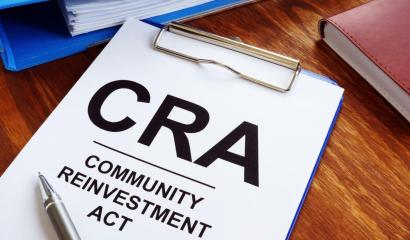Ali Abbas
Is greenwashing illegal?
By Hannah Duncan, investment writer and ESG expert
We all exaggerate from time to time. And customers have come to expect that brands will be no different. Toys featured on garish children’s adverts don’t really come to life. Anti-aging cream will not actually restore skin to its adolescent state. And – much to the disappointment of many a 15-year-old boy – certain deodorants do not lead to droves of women hunting them down with uncontrollable lust.
In the words of fraudster Anna Sorokin’s lawyer, there’s a little bit of that in all of us. But what about when brands claim to better for the planet than they truly are? The practice – known as greenwashing – is fast becoming a serious regulatory risk.
Laws and regulations prohibiting greenwashing
Over recent months, greenwashing has indeed become illegal and is closely guarded by several regulators across the globe. Here’s what you need to know:
CMA’s Green Claims Code 2022
In 2021, the Competition and Markets Authority (CMA) published some damning evidence. Up to 40% of green claims found online were found to be unsubstantiated. In response to this chilling finding, industry experts set about developing the six-point Green Claims Code.
So what happens to businesses or websites who violate the principles of the code? According to CEO of the CMA, Andrea Coscelli they “could face action from the CMA ”. Although the semi-legislative body have not specified the type of action, the penalty would probably be a fine.
The CMA can fine misbehaving companies up to 5% of their annual turnover. In November 2021 for example, the organisation slapped Facebook with a whopping £50.5 million bill for breaking acquisition rules.
CAP and BCAP Codes
ASA, the UK’s Advertising Standards Authority has the power to ban adverts if they are “misleading”. This applies across all sales ads such as direct marketing and in-store promotions, with the Committee of Advertising Practice (CAP) code. As well as adverts which are played on the TV and radio, under the Broadcast Committee of Advertising Practice code (BCAP).
Over the past months, the authority has been clamping down hard on greenwashing. In Autumn 2021, it launched an investigation to uncover how the public perceives buzzwords like “carbon-neutral” or “net-zero”, as well as the general understand of electric cars. Over the next year, ASA will conduct a series of investigations across different industries including food sectors and waste management. This poses a major risk for industries.
One example is Innocent. The smoothie brand which has long-been heralded as a green giant recently came under fire for an advert that implied it was helping the planet. In light of its disposable plastic bottles, the advert was found to be misleading and booted off air.
Anyone can make a complaint to ASA, and it’s proving to be an effective way for organised activists to protest greenwashing. In the Innocent case for example, 26 members of Plastic Rebellion voiced their concerns online.
The Consumer Protection from Unfair Trading Regulations 2008
Although the Consumer Protection Act was not motivated by greenwashing, in some cases it can still be used by disgruntled customers.
If the customer can prove that the misleading greenwashing tempted them to buy the product (and they would not have done otherwise), they may have a civil case. It’s not the smoothest route, but it could be a possibility.
Anti-greenwash laws and regulations on the horizon
The legal campaign against greenwashing is just beginning.
For some years, the European Commission has been ramping up to tackle greenwashing head-on by developing indisputable definitions of sustainable buzz-words.
As of last year, financial services and other sectors can no longer call themselves “ESG” for any benign reason. The definitions, which have now been enshrined in law in the EU Taxonomy clearly set boundaries. For the time being, there are no hard sanctions for organisations who use these terms incorrectly. But it’s likely that there will be soon, as the EU continues to transform its Green Deal from rhetoric into reality.
What’s more, other countries are following suit. Some, such as Singapore or states like California already have well-developed taxonomies. For others, such as the UK, they are quickly making headway. It’s more than likely that these green definitions will soon become part of the legal landscape. And the motivation is clearly to put an end to intentional and unintentional greenwashing.
In the UK, the Financial Conduct Authority has outlined greenwashing as a critical area ripe for legislation. As part of the Future Regulatory Framework, the organisation will tackle greenwashing, with more to follow later this year.
How can businesses and financial services prepare?
Patience is wearing thin for brands that greenwash. Not only could they face serious taxes and fines, but they also run the risk of public backlash and boycotts. Over recent years and with the rise of social media, this has become a significant risk for business. For example, despite numerous inquiries and attempts to reconcile, fast fashion retailer Boohoo cannot recover its former market share following reports of modern-day slavery. Even five years ago, 63% of customers expected their choice of brand to have a moral compass. Today, in the midst of an environmental, social and political awakening, that figure is likely to be higher.
The best way for businesses to avoid these catastrophic risks is to ensure that they are clued up on the rules. Every member of the company and their associated marketing agencies should be well-versed in the codes and taxonomies.
Brands must also stay on top of the incoming flood of anti-greenwash regulations – which are hitting sectors faster and harder than ever before. One way to do this is with RegTechs, such as CUBE. CUBE’s products continuously scan the world’s regulatory movements so you don’t have to. Alerts, dashboard and suggested actions help financial services to prepare in the most efficient way possible. Whichever approach you decide to take, ensure that you are fully-up-to-date to avoid financial and reputational damage.
The regulatory landscape for ESG is changing fast across the globe, with governments and regulators tentatively lifting the lid on greenwashing. Keep ahead of the regulations that could effect your business with CUBE.







